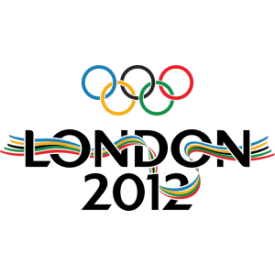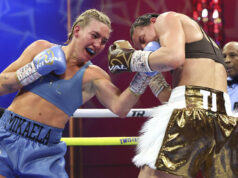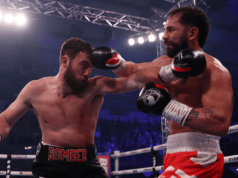The Biggest Problems with Boxing at the Olympics
The London 2012 Olympics are finished, and it sure was an eventful two weeks for boxing. Certainly, there were plenty of highlights, including the enthusiastic crowds at the ExCel Arena, the strong performance of the home-country Brits and the fantastic debut of the women’s fight game. However, what stood out the most for many fans are the flaws and underlying systematic problems within the sport of Olympic boxing.
With that said, here are the three most pressing issues that need to be fixed in order to resuscitate Olympic boxing. No, that doesn’t include the dismal performance of the men’s United States boxing team. That’s a national issue, whereas these are large scale problems with the foundation of the sport down to its core, and affect fans and participants regardless of which country they’re cheering or fighting for.
The Scoring
 The scoring system for amateur and Olympic boxing is absolutely atrocious. While the system utilized at London 2012 was better than the one in place for Beijing 2008, it still failed to take into consideration the majority of what is considered to actually be effective boxing. Small things like hitting your opponent hard, knocking him down, controlling the fight’s distance and pace, and protecting yourself.
The scoring system for amateur and Olympic boxing is absolutely atrocious. While the system utilized at London 2012 was better than the one in place for Beijing 2008, it still failed to take into consideration the majority of what is considered to actually be effective boxing. Small things like hitting your opponent hard, knocking him down, controlling the fight’s distance and pace, and protecting yourself.
The AIBA is already planning on switching to a professional style 10-point must system in time for the 2016 Summer Games in Rio, so we can be thankful for that. However, if the judges aren’t properly trained, the referees aren’t enforcing the appropriate rules, and the system isn’t free of speculation on medal-buying scandals and corruption, it still won’t do much good.
During the games, the AIBA took swift corrective action on several occasions, such as suspending or expelling officials, reversing scorecards and so forth. That’s a positive. However, in some cases, they did nothing to change a controversial outcome. Moreover, while correcting a mistake is worthy of praise, the other side of the equation must ask, how was it allowed to happen to begin with?
[Editor’s note: During the London Olympics, the AIBA sent out an email blast entitled “editorial advice” in which they warned publications of repeating a 2011 BBC report which stated the AIBA was paid $10 million in exchange for two gold medals, an allegation they steadfastly call false. Even as false, attempting to silence the media does not do anybody any good, the AIBA included. A legitimate scoring system with highly trained judges, referees and officials in place would effectively eliminate any talk of corruption once and for all].
Amateur & Professional Ties
The AIBA has also come under fire for the creation of the APB, the AIBA Professional Boxing league. The APB is signing amateur fighters to professional contracts, planning to allow them to compete for money while retaining their amateur status in order to continue pursuing further Olympic glory.
An international, league-style format for professional boxing could be a fantastic idea, if for no other reason than having a number of high quality fighters under one banner and matching them up with one another on a consistent basis, which is always great for the sport. Additionally, having global infrastructure in place to support those kinds of competitions is wonderful, not to mention perhaps installing more universal rules and regulations to keep the sport running smoothly and coherently.
However, the organization that controls the amateur sport cannot hope to keep its hands clean from controversy as they attempt to delve into the professional ranks. Already, there were grumblings that APB-signed fighters got favorable scores during the London Olympics, and that’s the kind of claim that will only continue to increase.
The NFL or NBA may work with the NCAA at times to help create guidelines and rules which act as go-betweens from the collegiate and professional systems. However, the NBA doesn’t create the brackets for March Madness, and then begin signing players at Duke and North Carolina before they’re done playing for those schools.
Simply put, even if perfectly managed and free of controversy, the APB just reeks of conflict of interest.
Television
While this is a problem within the United States, it’s not about Team USA, and therefore it warrants inclusion on a list discussing the biggest problems with Olympic boxing as a whole.
If you wanted to watch Olympic boxing on your television during the London Olympics, you just didn’t have many opportunities. It was relegated mostly to random, unfavorable timeslots on CNBC. The coverage wasn’t promoted, and the fights didn’t make the nightly primetime highlights and studio rundown of the Games.
I’ve stated this before, but I have a real problem buying into the theory that there are more fans of badminton, canoeing or equine competitions than there are boxing fans. Maybe if the judging system wasn’t so wacky and consistently incorrect, the sport would begin getting more mainstream coverage once again.
Of course, there’s also the controversial issue of the AIBA booting the NBC commentary crew from their ringside table before the competition was over . While this was publicly due to the broadcasters being “very disturbing for AIBA officials” I wonder if the AIBA was really just very disturbed about the constant criticism coming from the mouth Teddy Atlas.
Maybe that’s just a coincidence, but even so, it’s the same old thing with the AIBA. They could be the cleanest, most ethically, morally and professionally run organization or business in the world. Maybe they are.
However, they continue raise more questions about their true motives and potential conflicts of interest, while failing to address the largest problems which are plaguing the sport which they govern. Until that’s resolved, the perception of the sport and their organization can never be fixed, and the sport as a whole will continue to languish under the existing conditions.











